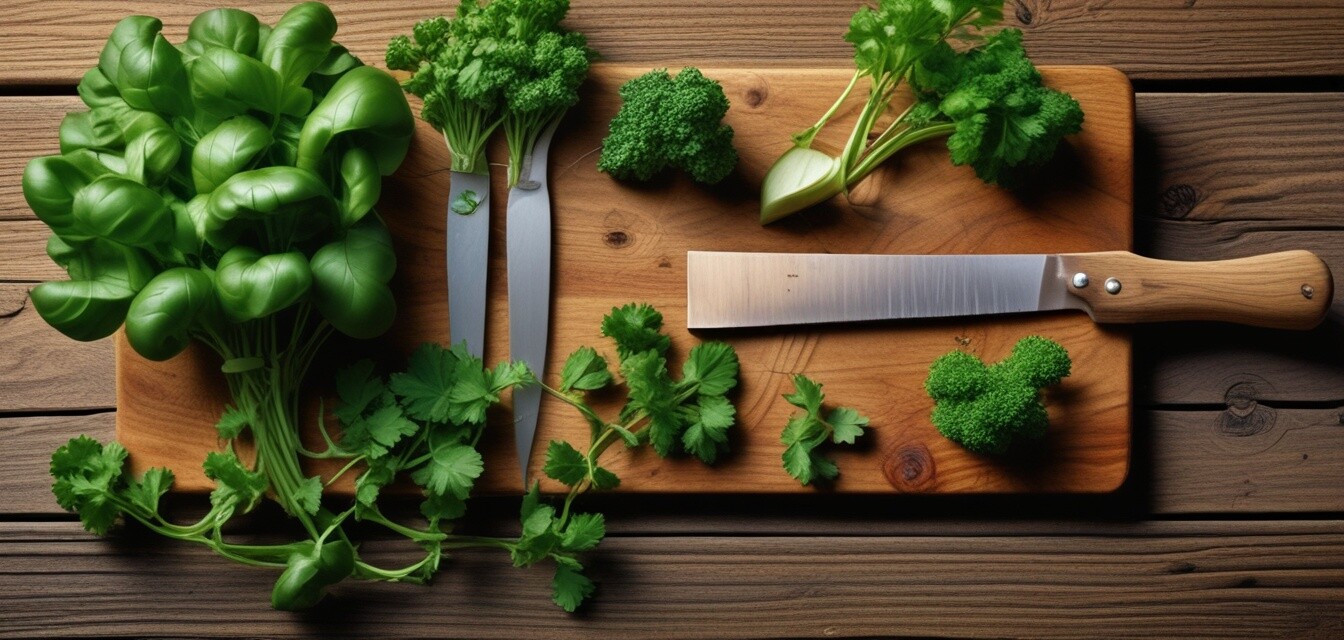
The Benefits of Cooking with Herbs
Key Takeaways
- Fresh herbs elevate the flavor profile of your dishes.
- Herbs provide various health benefits and can replace salt in recipes.
- Incorporating herbs is simple, no matter your cooking skill level.
- Different herbs bring unique flavors; understanding their uses enhances your culinary creativity.
- Grow your own herbs for easy access and fresher flavor.
Cooking with herbs not only enhances the flavor of your meals but also brings a wealth of health benefits to your table. Fresh herbs can transform simple dishes into delightful, aromatic masterpieces. Whether you're an experienced chef or a beginner in the kitchen, adding herbs to your meals is a straightforward technique that can make a significant impact.
Why You Should Use Herbs in Your Cooking
There are many reasons to cook with herbs. Not only can they enhance the taste of your food, but they are also often packed with nutrients. Here are some benefits to consider:
- Flavor enhancement: Fresh herbs add vibrant flavors and aromas that can elevate any dish.
- Health benefits: Many herbs contain antioxidants and offer various nutrients.
- Lower sodium intake: Using herbs can reduce the need for salt, making meals healthier.
- Culinary creativity: Experimenting with different herbs encourages creativity in the kitchen.
- Easy to grow: Many herbs can be grown in pots or gardens, allowing for fresh access.
Popular Fresh Herbs and Their Uses
Understanding different herbs and their flavor profiles can help you select the right ones for your dishes. Below is a table showcasing some of the most popular fresh herbs along with their common culinary uses:
| Herb | Flavor Profile | Common Uses |
|---|---|---|
| Basil | Sweet, slightly peppery | Pasta sauces, salads, pizza, pestos |
| Cilantro | Fresh, citrusy | Salsas, Asian dishes, garnishes |
| Parsley | Fresh, mild | Soups, salads, garnishes |
| Rosemary | Pine-like, earthy | Roasted meats, potatoes, focaccia |
| Thyme | Earthy, minty | Soups, stews, roasted vegetables |
Tips for Using Herbs in Your Cooking
Beginner-friendly tips:
- Start with a few fresh herbs you enjoy and gradually expand your collection.
- Always wash herbs thoroughly before use to remove any dirt or pesticides.
- Use fresh herbs toward the end of cooking for maximum flavor.
- Consider drying or freezing herbs if you have an excess.
- Experiment with combinations of herbs to find unique flavor blends.
How to Store Fresh Herbs
Proper storage of herbs is essential to keep them fresh and flavorful. Here are some effective methods:
- In the fridge: Wrap herbs like basil, parsley, and cilantro in a damp paper towel and place them in a sealed bag or container.
- In water: Place upright in a glass of water like a bouquet and cover loosely with a plastic bag to maintain moisture.
- Freezing: Rinse, chop, and freeze herbs in ice cube trays with a bit of water or olive oil for use in the future.
Exploring Herbal Infusions and Seasonings
Aside from fresh applications, herbs can also be used to create flavored oils, vinegars, and infused broths that can add a gourmet touch to your meals. Here’s how to make herbal-infused oil:
- Choose your preferred herb (e.g., rosemary, thyme).
- Combine the herb with a neutral oil in a small saucepan over low heat.
- Allow it to infuse for 30–60 minutes without boiling.
- Strain into a clean bottle, and store it in a cool, dark place.
Conclusion
Incorporating herbs into your cooking is a delightful way to enhance flavors and increase nutritional value. By understanding the benefits and ways to use herbs, you'll be on your path to creating flavorful dishes that are sure to impress. Discover more about the essential baking essentials and kitchen appliances that can assist you in your cooking journey.
Pros
- Enhances flavor without extra calories.
- Promotes health benefits naturally.
- Encourages creativity in meal preparation.
- Convenient to grow and access.
Cons
- Some herbs may be seasonal and harder to find year-round.
- Requires proper storage to retain freshness.
- Too much can overpower your dish.